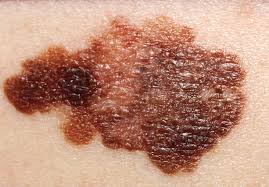To address this, the public health community is looking at good practices across EU countries, where alcohol consumption has been decreasing or has been kept at relatively low levels.
The new WHO/Europe report “Nordic alcohol monopolies: understanding their role in a comprehensive alcohol policy and public health significance” highlights a comprehensive model used in the Nordic countries that other EU countries could learn from.
A model for reducing harm
Unlike for-profit alcohol sales models, the Nordic approach (excluding mainland Denmark and Greenland) restricts alcohol availability and minimizes commercial influence by preventing grocery stores and private retailers from selling stronger alcoholic beverages.
State-owned monopolies – ÁTVR in Iceland (with Vínbúðin as the retail store for alcohol), Systembolaget in Sweden, Alko in Finland, Rúsdrekkasøla Landsins in the Faroe Islands, and Vinmonopolet in Norway – operate with a clear mission: to protect public health over profit.
With limits on outlet numbers and sale hours and days, strict enforcement of age controls, and no marketing or discount pricing, these monopolies emphasize managing alcohol as a product with inherent risks, rather than treating it as an ordinary consumer product.
“This public health-first approach in the management of alcohol retail sales in Nordic countries is a great demonstration of alcohol policies that work,” says Dr Carina Ferreira-Borges, Regional Adviser for Alcohol, Illicit Drugs and Prison Health at WHO/Europe.
“Countries with state-owned monopolies have lower per capita alcohol consumption compared to the EU average, and generally have lower rates of alcohol-attributable harms, which span from liver disease, cancers and cardiovascular conditions to injuries and drownings.”
Challenging pressures and threats
Despite the monopolies’ strong public support and proven health benefits, recent legislative initiatives in several Nordic countries signal a potential shift toward privatization of retail alcohol sales, which could undo decades of public health gains.
In Finland, for example, recent policy changes have allowed the sale of a large proportion of alcoholic beverages outside monopoly stores, and there is ongoing consultation on permitting home delivery of alcohol. Similarly, in Sweden, a new court case challenges the monopoly’s exclusive rights to online sales, while proposed laws would permit farm sales of alcoholic beverages.
“There is consistent evidence that the structure of the retail alcohol distribution system – in other words, how, when and where alcohol is sold – significantly affects alcohol sales,” adds Dr Ferreira-Borges. “Government monopolies on off-premises retail sales have been shown to reduce alcohol consumption, while privatizing alcohol sales tends to increase consumption.”
Two significant real-world privatization events illustrate how allowing alcohol sales in grocery stores in the 1960s has historically resulted in increased consumption and associated problems in Finland and Sweden. These findings suggest that the Nordic monopolies’ strict regulation of alcohol availability and elimination of promotion and marketing at sales outlets, including online stores, are key features that contribute to reduced alcohol consumption at the population level in their respective countries.
“WHO/Europe emphasizes that expanding alcohol availability could reverse the positive public health indicators that Nordic countries have achieved over decades of controlled alcohol sales,” Dr Ferreira-Borges concludes.
A global best-practice model at risk
Nordic alcohol monopolies serve as models worldwide, showcasing the benefits of recognizing alcohol as a harmful product with considerable social, economic and health impacts that requires specific approaches to management.
They align closely with WHO’s 3 recommended best buys (affordable, feasible and cost-effective intervention strategies) for alcohol control: increasing taxes/raising prices, restricting availability and restricting advertising. These have consistently shown to be the most effective means of reducing alcohol-related harm on a broad scale.
WHO/Europe calls on governments in the Region to prioritize health over profits and resist the push towards privatization, which threatens to dismantle a globally acknowledged model for reducing alcohol-related harms and protecting public health interests.












